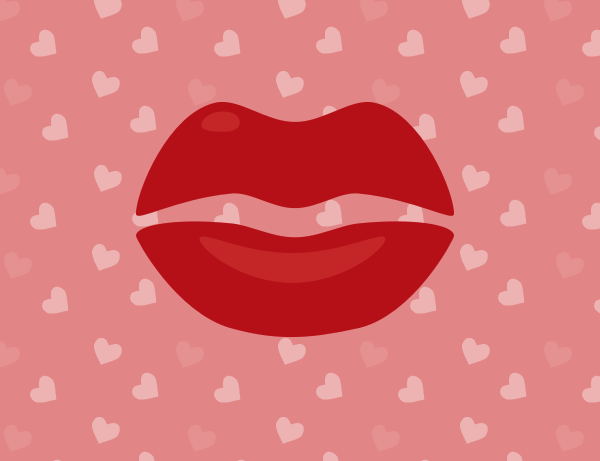In many respects we have become a left-brained society. We value reasoning, analytic and linear thought, routine and structure. We focus on the details rather than the big picture, as opposed to the more intuitive, creative, philosophical, emotional, holistic thinking attributed to the right-brain. This approach to decision-making has even infiltrated the way we eat. Of course, we don’t use the left OR the right (it is one brain)! Our food choices are still influenced by the taste, colour, smell, and texture of food (the proliferation of food bloggers, cook books and food shows are a testament to this), but on a societal level we rely more on nutrition science. Whether it be dietary guidelines produced by the government, calorie counting advocated by the weight loss industry, or the amount of specific nutrients touted to be beneficial by the latest media headline.
In a survey of attitudes to food across different cultures Paul Rozin and colleagues observed that Americans associated food most with health and least with pleasure, while conversely the French associated food with pleasure and least with health. Furthermore, Americans modified their diet to be healthier (e.g. consumed low-fat foods) more than any other group, but were least inclined to consider themselves “healthy eaters”. These findings suggest that the act of eating has become a stressor in our lives. The food and health industry has capitalized on this by propagating the attainment of the ‘perfect’ body
and ‘perfect’ diet and when we ‘fail’ to reach these goals, the worry leads to anxiety, guilt and dissatisfaction. Just think about the every day language we use when talking about food: ‘bad’, ‘fattening’, ‘unhealthy’, ‘not good’, ‘treat’, ‘cheat’, ‘junk’, ‘clean’, ‘guilt-free’…. And when making decisions we say that we can’t …daren’t, ….shouldn’t. Even thinking these words leads to the release of neurochemicals that start the stress response and if said out loud the stress response is intensified, not only in your brain but also in the brain of others in ear shot! And we all know that we don’t make the best decisions under stress!
So how do we start to become more like the French and gain pleasure from food and the act of eating?
 Drop the negativity. No single food is ‘bad’, likewise consuming a bacon sandwich or chocolate brownie does not make you a ‘bad’ person. Use positive affirming language when you are referring to your body and diet (and for that matter that of others). Having dietary and fitness goals are a good thing but beating yourself up when you experience a set back is not. At first you will need to consciously choose your words more carefully but over time it will become more automatic. Remember, it is about your long-term lifestyle and not short term behaviour. And when you achieve success, share your story, positivity is just as contagious as negativity.
Drop the negativity. No single food is ‘bad’, likewise consuming a bacon sandwich or chocolate brownie does not make you a ‘bad’ person. Use positive affirming language when you are referring to your body and diet (and for that matter that of others). Having dietary and fitness goals are a good thing but beating yourself up when you experience a set back is not. At first you will need to consciously choose your words more carefully but over time it will become more automatic. Remember, it is about your long-term lifestyle and not short term behaviour. And when you achieve success, share your story, positivity is just as contagious as negativity.- Allow ALL foods to fit. Following strict food rules leads to a preoccupation with specific foods, which in turn can lead to a cycle of resisting and bingeing on these foods. Giving yourself permission to allow these ‘no’ or ‘bad’ foods to be a part of your diet makes them less exciting, and over time you will no longer feel that they are something that needs to be controlled. Healthy eating is about variety, moderation, and balance.
- Take time for self-care. Focus on your health not your size. Bring awareness to how different foods and activities make you feel and identify what satisfies YOUR body. Set aside time for you, whether it be a pedicure, a candle lit bubble bath, or a weekend at the spa. And last but not least, ensure that you get enough quality sleep. Along with a balanced diet and being active, adequate sleep has been associated with a reduced risk of obesity, hypertension, high cholesterol, and heart disease. So don’t neglect this part of the equation.

During Nutrition Month, we aim to make small changes, working towards the goal of a more healthful diet. To support lasting change we need to both alter our physical environment and our attitudes. Your body deserves your respect… despite not always providing it with the optimal fuel it still does an amazing job. Starting in your mouth and ending in your intestines it digests your food, adjusting the absorption of nutrients to meet your needs. It then distributes these nutrients to your cells, again making adjustments so that all your body systems stay in balance, and what isn’t needed is then eliminated via the kidneys or intestines. You are a pretty cool piece of machinery.
If your eating habits are predominantly influenced by left-brain thinking, this might all sound a little ‘touchy feely’, but it’s time to engage the right side and see the big picture. Only when you fully learn to appreciate your body will you be able to speak positively, give yourself permission, and value self-care. You are awesome, and you can do it, so be your biggest cheerleader. To combat food related anxiety, you need to nurture, then nourish, and over time you will flourish!






Leave a Reply